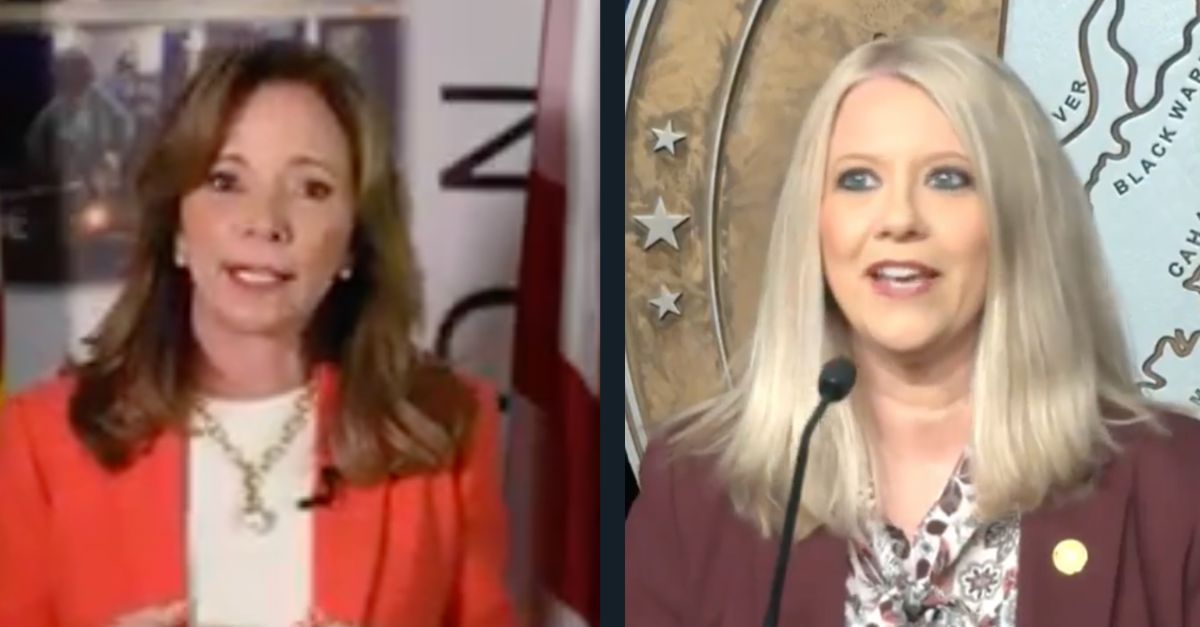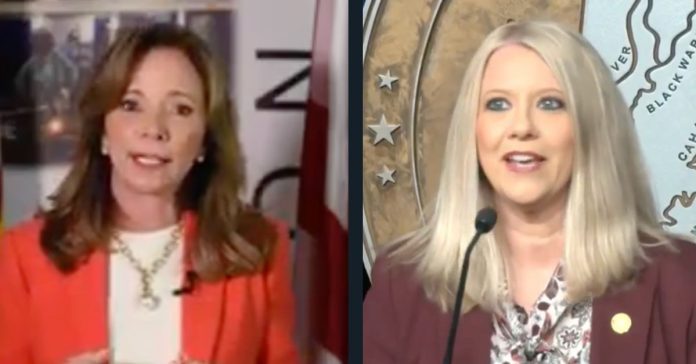
Left: Alabama Republican Rep. Susan DuBose (screengrab via Facebook). Right: Alabama Republican State Sen. April Weaver (Screengrab via WBRC).
In Alabama, where frozen embryos are considered “children,” hospitals have stopped carrying out IVF procedures, and inmates are being put to death via novel methods, two lawmakers have focusing their attention on ensuring that the term “intersex” and the concept of gender identity is abolished from the state’s lexicon.
Bills in the Alabama House and Senate look to define the terms “male,” “female,” “boy,” and “girl” under state law for the purpose of creating “single-sex spaces” that adhere to those definitions. According to the bill, “there are only two sexes,” and “men and women are equal but not physically the same.”
The bill also states that intersex individuals are not a “third sex,” but allows that those with medically verifiable differences in sex development must be accommodated under federal disability law.
“Intersex” is a nonmedical general term for a person whose anatomy does not fit the typical gender definitions. The term does not describe a transgender person who has a gender identity different from their sex at birth. Rather, “intersex” describes a group of nonbinary anatomical conditions, which is why New York City added intersex as a gender designation on official documents in 2017.
Alabama State Rep. Susan DuBose, a Republican, sponsored H.B. 111, which she said is intended to “protect women’s spaces” such as dorms and locker rooms, by restricting those spaces to those who “has, had, will have, or would have, but for a developmental anomaly, genetic anomaly, or accident, the reproductive system that at some point produces ova.”
Likewise, “males” under the law are those who have already, will in the future, or would have at some point “produced sperm.”
H.B. 111 is not the first attempt DuBose has made to change gender definitions in Alabama law. After taking office in 2022, she sponsored a bill nicknamed the “What is A Woman Act” that also defined the sexes.
State Sen. April Weaver, also a Republican, sponsored the Senate version of the bill. Weaver said the proposal is “a definitional bill for our courts to have guidance when interpreting laws that already exist in Alabama,” and added that the bill’s main objective was to acknowledge that the term “sex” is “objective and fixed,” and does not include gender identity.
Kaitlin Burkette testified against the bill and urged senators not to bring the bill to a vote, calling it an “organized attack” on a minority community by “looking for a problem that is not there.”
“If this is the only lens the community views the LGBTQ community through, you all are reducing a community of people down to the sex acts that you imagine them performing and robbing that community of its humanity,” Burkette said. “When the state robs a community of people of their humanity for any reason, including whom they love, it would be a stain on the history of Alabama.”
Weaver explained her reasons for supporting the legislation.
“I would say I have had many more people advocating for standing up for women’s rights, loud and clear in my district that women want to be heard and they want to be advocated for so that’s what I’m here doing today,” she told press after the public hearing.
Alabama has a history of low rankings for women’s political participation, employment and earnings, reproductive rights, and health. Lawmakers in Alabama have recently proposed charging women who terminate pregnancies with abortion pills with murder.
Have a tip we should know? [email protected]

